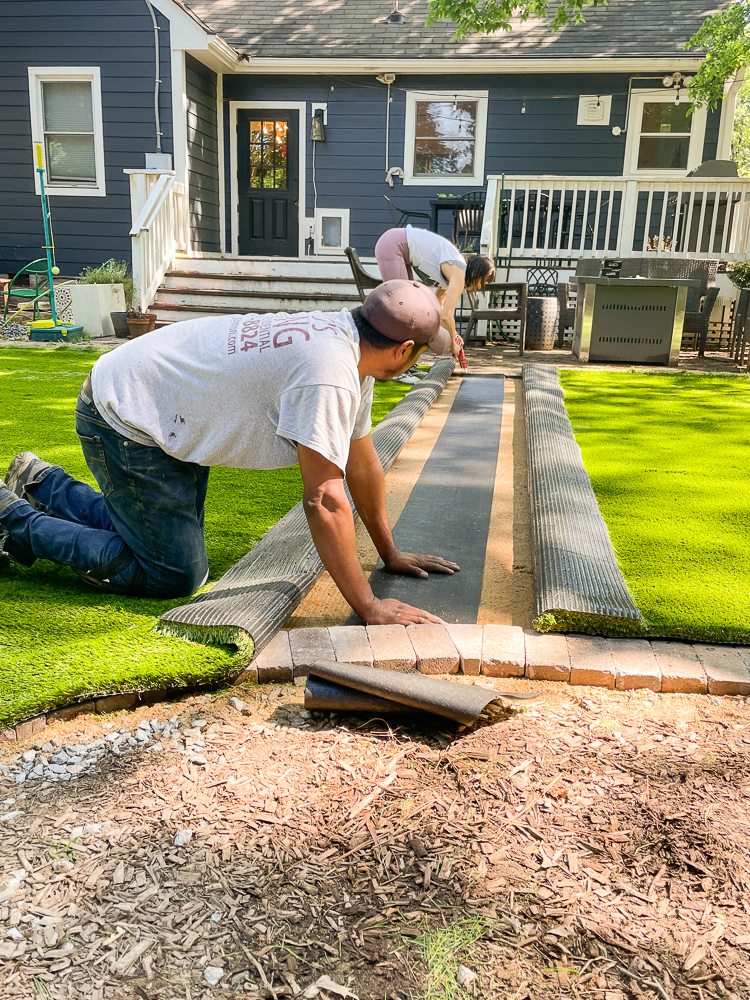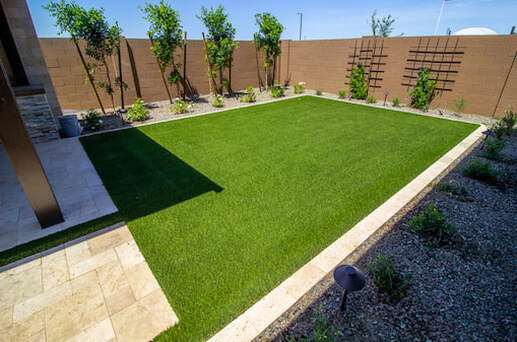Leading Reasons to Take Into Consideration Artificial Lawn for a Rich and Low-Maintenance Lawn
As house owners significantly look for lasting remedies for outdoor spaces, artificial grass presents an appealing alternative to traditional lawns. The advantages expand past plain appearances and sustainability; exploring the multifaceted implications of artificial yard discloses a thorough strategy to lawn management that advantages deeper consideration.
Year-Round Plant
Among the most considerable benefits of fabricated lawn is its ability to give year-round greenery, despite environment conditions. Home owners typically face obstacles in preserving a vivid yard due to seasonal modifications, droughts, or heavy rains. Synthetic grass gets rid of these concerns, making sure a consistently lavish appearance throughout the year.
This synthetic choice is engineered to hold up against varied climate scenarios, from sweltering summer season warm to cold winter temperatures. Unlike all-natural grass, which might brownish or become irregular throughout extreme conditions, fabricated turf keeps its dynamic shade and appearance, enhancing the visual allure of any landscape.
Furthermore, man-made yard is resistant to insects and illness that typically affect natural yards. This strength adds to its enduring beauty, as there is no requirement for chemical treatments or plant foods that can be unsafe to the environment. Property owners can delight in the visual benefits of a properly maintained grass without the cyclical obstacles posed by all-natural lawn treatment.
Minimized Maintenance Efforts
Synthetic turf substantially minimizes maintenance efforts, allowing homeowners to take pleasure in an immaculate grass without the lengthy tasks related to natural yard treatment. One of the most notable benefits of artificial turf is the elimination of normal mowing. Without any requirement for a lawnmower, homeowners conserve both time and the expense of maintenance connected with this tools.

Cleaning synthetic turf is simple; a basic rinse with a pipe or the periodic brushing to eliminate debris is typically sufficient - backyard artificial grass. This simplicity of treatment allows house owners to invest even more time appreciating their outside spaces as opposed to struggling over them. In summary, the lowered upkeep initiatives connected with man-made turf make it an appealing choice for those looking for a beautiful, convenient backyard
Water Conservation Advantages
The significant decrease in upkeep efforts connected with fabricated lawn prolongs to water preservation, making it an eco friendly option for home owners. Standard lawns call for considerable amounts of water to continue to be rich and vibrant, frequently leading to excessive water use, especially in dry regions. On the other hand, man-made turf removes the requirement for normal watering, dramatically decreasing the total water usage in your backyard.
By opting for artificial turf, house owners can conserve countless gallons of water each year. This change not just benefits private households however also contributes to more comprehensive environmental efforts focused on decreasing water waste. In locations experiencing water scarcity, the adoption of fabricated grass can play a considerable duty in reducing the results of dry spell and making sure that beneficial water resources are used extra efficiently.
Moreover, the installment of artificial turf can help reduced local water demand, benefiting the area in its entirety. With growing understanding of ecological concerns, choosing synthetic lawn works as a positive action in useful content the direction of lasting landscape design, aiding to preserve natural water sources while preserving a visually pleasing outside area (artificial grass canoga park). In summary, synthetic turf provides a compelling service for water conservation, lining up environmental responsibility with modern landscaping needs

Parasite and Allergy Decrease
A considerable advantage of setting up synthetic grass is its ability to minimize pests and allergens in exterior areas. Typical turf yards typically work as breeding premises for insects such as mosquitoes, ticks, and ants, which can develop discomfort and health and wellness risks for family pets and families. On the other hand, fabricated grass gets rid of the natural material that draws in these parasites, thereby substantially lowering their populations in your backyard.
Moreover, natural lawn can nurture mold and mildew, pollen, and other irritants, which can cause allergies and respiratory problems for delicate people. Artificial turf offers a cleaner atmosphere, minimizing the possibility for allergenic reactions. Unlike natural turf, man-made turf does not produce plant pollen, making it a superb option for allergic reaction sufferers seeking to enjoy their outdoor areas without the danger of flare-ups.
Furthermore, the lack of dirt in synthetic grass means there is less dust and dirt, further minimizing airborne allergens. This low-maintenance alternative not only enhances the visual allure of your backyard yet additionally advertises a much healthier exterior atmosphere, enabling households to enjoy their yards without the constant worry of pests and allergens. Hence, he said fabricated yard is a strategic choice for those focusing on convenience and health and wellness in their outside home.
Long-Term Cost Financial Savings
Investing in artificial turf can lead to significant long-lasting price savings for homeowners. Fabricated turf removes the requirement for normal yard upkeep expenses, such as mowing, feeding, and watering.
Moreover, the long life of artificial lawn additionally improves its cost-effectiveness. A lot of top notch artificial grass products can last 15 to 25 years with very little upkeep, lowering the requirement you can try here for substitute or comprehensive repairs. On the other hand, all-natural turf may require frequent reseeding and routine treatment, which can swiftly build up in costs.
Utility financial savings are another crucial factor. House owners can expect to see lower water bills, as artificial turf does not call for irrigation. Furthermore, the reduction in yard care services can liberate useful time and sources, permitting home owners to assign their spending plans in other places.
Final Thought
In summary, fabricated yard presents various advantages for home owners looking for a low-maintenance and vivid landscape. Ultimately, the long-term expense financial savings connected with synthetic grass strengthen its standing as a sustainable and sensible solution for improving outdoor areas.
Synthetic grass significantly minimizes maintenance efforts, enabling property owners to delight in a beautiful lawn without the time-consuming tasks linked with all-natural turf treatment.The substantial reduction in upkeep efforts linked with man-made yard expands to water preservation, making it an environmentally pleasant choice for homeowners. In comparison, man-made turf gets rid of the need for regular watering, significantly minimizing the general water usage in your backyard.
In locations experiencing water deficiency, the fostering of man-made turf can play a substantial duty in alleviating the results of drought and making sure that valuable water resources are made use of much more efficiently.
With growing recognition of environmental problems, selecting man-made yard offers as a proactive step towards sustainable landscape design, aiding to maintain natural water resources while preserving an aesthetically pleasing exterior area.